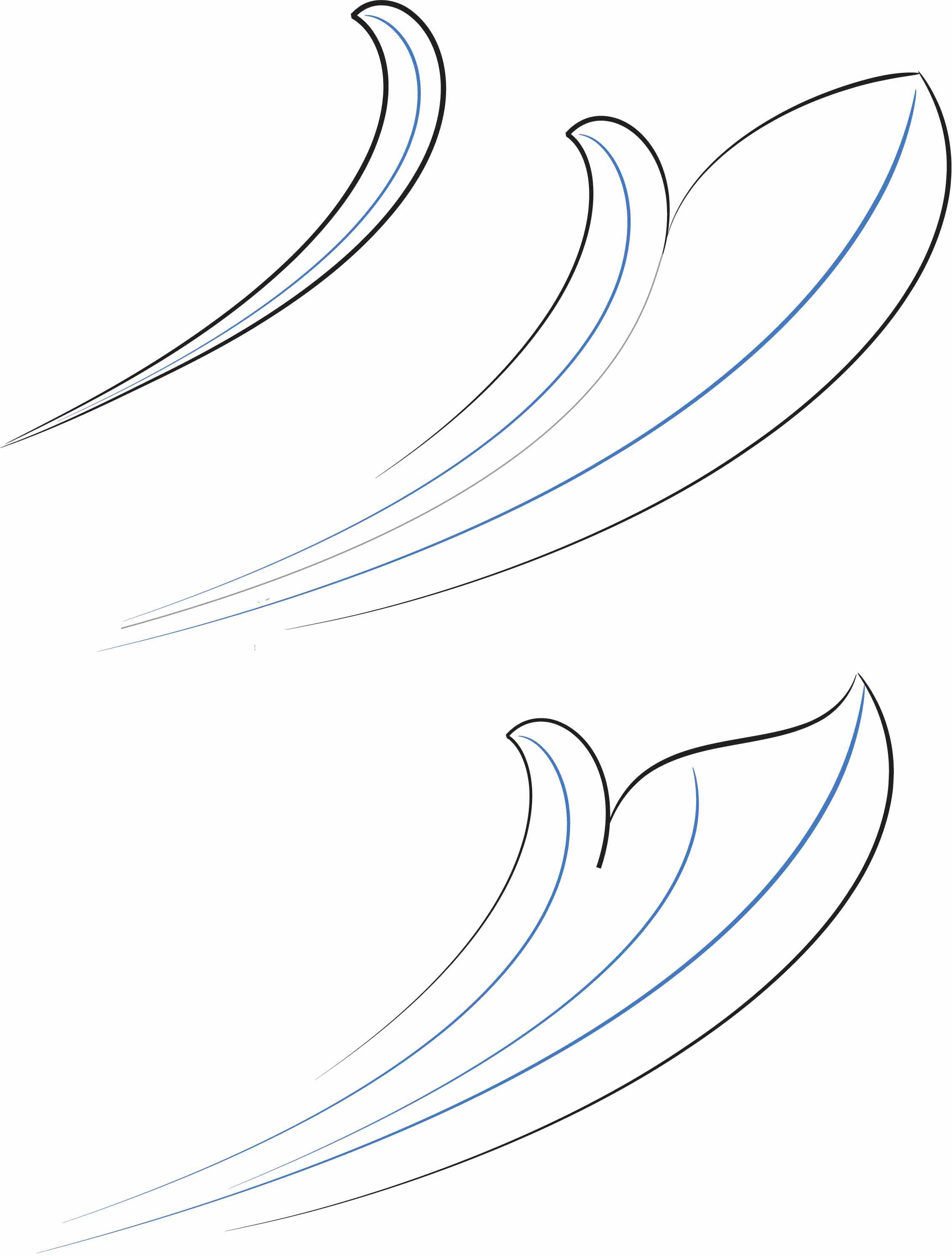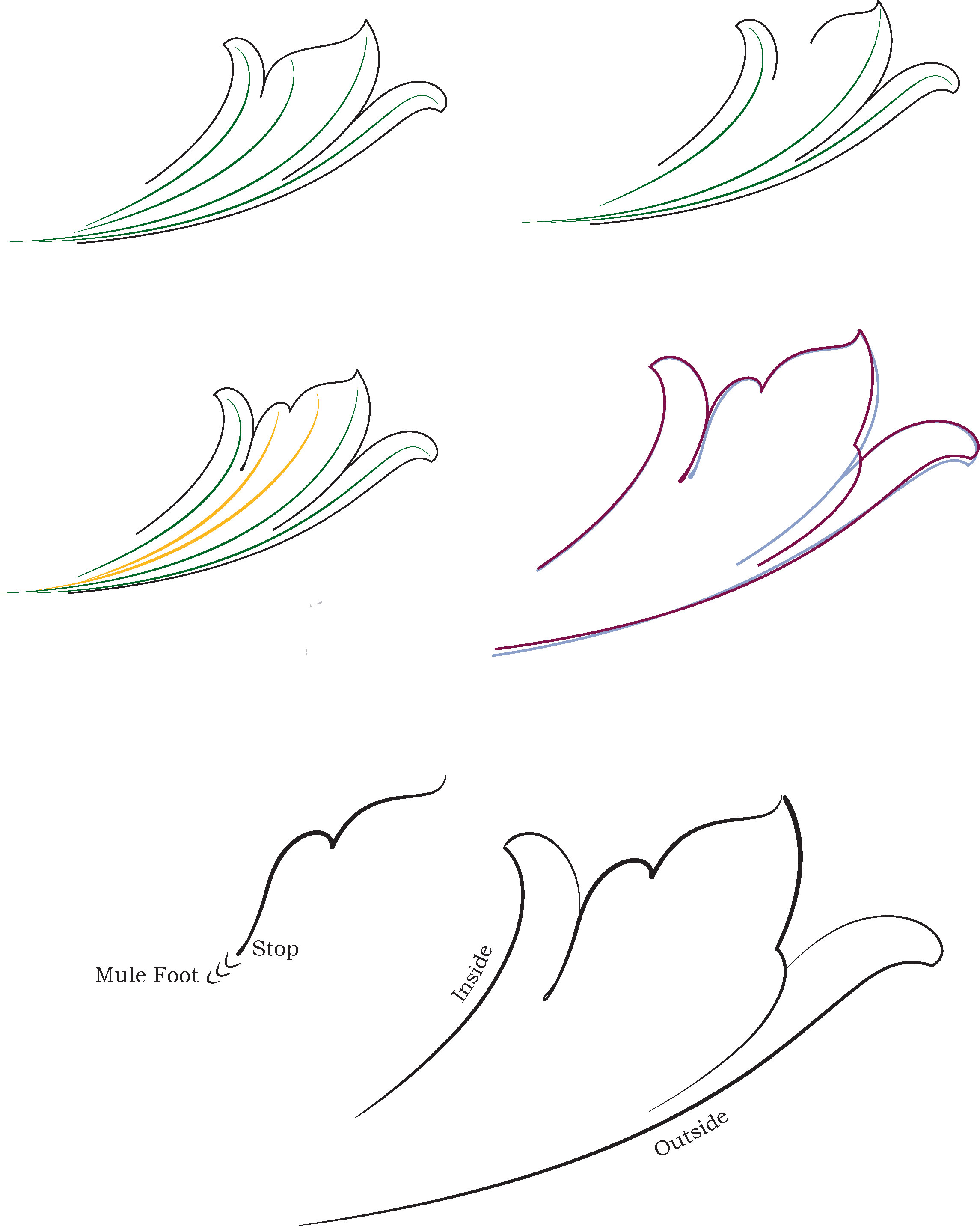This post is excerpted from my book, “Drawing Floral Patterns For Leather Tooling”
The following drawings illustrate
the skeletal lines within the various
shapes that we draw, starting with the
most basic leaf and progressing to complex
structures like acanthus leaves, scrolls,
and flowers.
The simple leaf in the drawing here
shows how the leaf tapers to blend into
the skeleton. This is the way that skeletal
lines work in a nicely flowing layout.
They are in the center of the various structures
in the drawing and keep things moving
smoothly.
In the next, more complex leaf there
are two skeletal lines, and in the next leaf
there are three. The third line descends
from the lobe that is formed by the S curve
at the top. Knowing that the skeletal line
is there, where the swelling of this lobe is
at its fullest, we are able to keep things
balanced.
As will be seen in the layouts presented
later, most of these lines don’t get
drawn in when drawing a layout pattern.
However it is important to know that they
are there. These lines form the composition
beneath the big picture.
For the purpose of this blog post I want to make a suggestion that you get a tracing pad, print out these images and trace the lines. -But- When doing this I suggest that you concentrate on the dimensions of each part relative to the other parts. Try tracing the little thumb, or simple leaf and then turn the tracing to see how many times its length will go into the the S curve at the top of the combined leaf. Concentrate on the size and sweep of the curves in the S curve. The curve at the tip is smaller than the curve that connects the thumb leaf. While tracing look to see how each line relates to the skeletal lines.
The point is, it is not enough to make the right number of bumps, curves and tapers. Each part needs to be in the right proportion to every other part.
It is perfectly acceptable to trace like this for the purpose of learning how it feels to draw certain shapes. If you practice enough you will develop muscle memory for the shapes. If you don’t gain muscle memory you simply won’t be able to draw floral designs. So develop the discipline to practice when you are not trying to work on an actual project.
When you can draw the basic shapes that you want to use in your patterns, then you will be ready to take on the much more complex task of putting them together in a layout.

